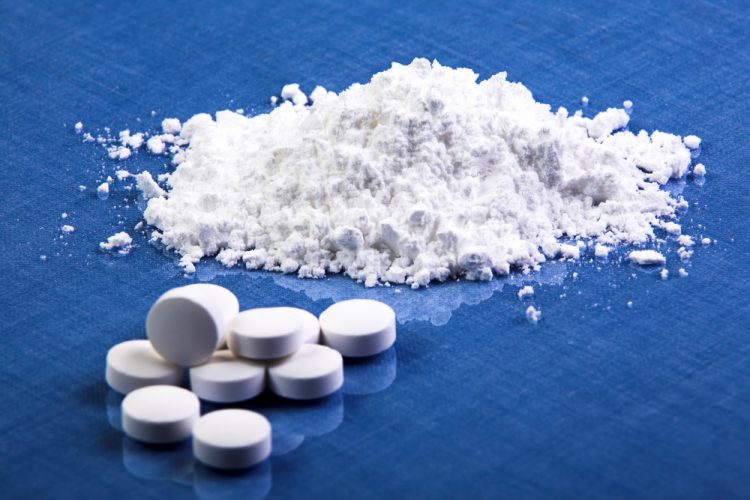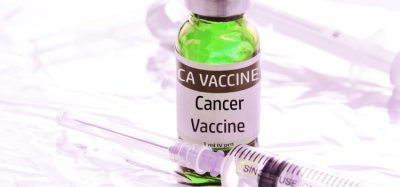Novel automated production technique could revolutionise production of small molecules
Posted: 2 June 2021 | Hannah Balfour (European Pharmaceutical Review) | No comments yet
The new automated active pharmaceutical ingredient production technique, solid phase synthesis-flow (SPS-flow), enables push-button automated multi-step synthesis of small molecules.


National University of Singapore (NUS) researchers have developed a method to automate the production of small molecules suitable for pharmaceutical use. The novel technique, which combines solid-phase synthesis and continuous-flow operation, can be used for molecules that are typically produced via manual processes. The method is called solid phase synthesis-flow (SPS-flow).
The team led by Assistant Professor Wu Jie from the NUS Department of Chemistry and Associate Professor Saif A Khan from the NUS Department of Chemical and Biomolecular Engineering, explained that the discovery and development of new small-molecule compounds for therapeutic use involves a huge investment of time, effort and resources. They stated that despite recent advances in end-to-end continuous-flow synthesis expanding the capabilities of automated small molecule synthesis, several challenges exist with these systems. These barriers, they said, limit the number of sequential steps that can be achieved in continuous-flow synthesis systems.
To overcome these limitations, the team developed a strategy that merges solid-phase synthesis and continuous-flow operation, enabling push-button automated multi-step syntheses of active pharmaceutical ingredients (APIs).
They demonstrated their novel technique on prexersatib, a pharmaceutical molecule used in cancer treatment. Using the novel system, the team achieved a fully automated six-step synthesis with 65 percent isolated yield within 32 hours. In addition, their technique also successfully produced 23 prexasertib derivatives in an automated fashion, signifying the method’s potential for drug discovery and design. The findings were published in Nature Chemistry.
Simplifying API production
The researchers explained recent advances in end-to-end continuous-flow synthesis have rapidly expanding the capabilities of automated syntheses of small-molecule pharmaceutical compounds in flow reactors. However said, while there may be well-defined production methods for molecules such as peptides and oligonucleotides which have repeating functional units, it is challenging to conduct multi-step continuous-flow synthesis of APIs due to issues such as solvent and reagent incompatibility between individual steps, cumulated by-product formation, risk of clogging and mismatch of timescales between steps in a processing chain.
The new automated technique developed by the NUS research team combines two chemical synthesis techniques – continuous-flow synthesis, where chemical reactions are carried out in a seamless process; and solid-supported synthesis, in which molecules are chemically bonded and grown onto an insoluble support material.
Their novel technique, SPS-flow, enables the target molecule to be developed on a solid supporting material as the reaction reagent flows through a packed-bed reactor. The entire process is controlled by computer automation. Compared to existing automated techniques, said the team, the SPS-flow method enables wider reaction patterns and longer linear end-to-end automated synthesis of pharmaceutical compounds.
The researchers tested their technique on cancer-inhibiting molecule prexasertib due to its suitability in being attached to solid resin which was used as the support material. Their experiments showed a yield of 65 percent after 32 hours of continuous automated execution. The existing method of producing prexasertib is estimated to take around a week and requires an extensive six-step manual process and purification procedure to produce a yield of up to 50 percent.
The new method also allows for synthetic modifications early in the process, hence enabling greater structural diversification compared to traditional methods which only allow late-stage diversification of a molecule’s common core structure. Using a computer-based chemical recipe file, the team successfully produced 23 derivative molecules of prexasertib. The derivatives produced are molecules with parts of the molecular structure differing slightly from the original molecule.
“The capability to easily obtain these derivatives is crucial during the drug discovery and design process as understanding the relationship between molecule structures and their activities play an important role for the selection of promising clinical candidates,” explained Associate Professor Khan.
Moving forward
The NUS investigators now plan to showcase the versatility of the SPS-flow technique by conducting more research incorporating top-selling pharmaceutical molecules.
“Our new technique presents a simple and compact platform for on-demand automated synthesis of a drug molecule and its derivatives. We estimate that 73 percent of the top 200 bestselling small-molecule drugs could be produced using this technique,” said Assistant Professor Wu.
Future studies, they said, will target the development of a fully automated and portable system for API production at a larger scale suitable for manufacturing that will apply the newly developed technique in lead optimisation to speed up the process of drug discovery.
Related topics
Active Pharmaceutical Ingredient (API), Drug Manufacturing, Therapeutics









